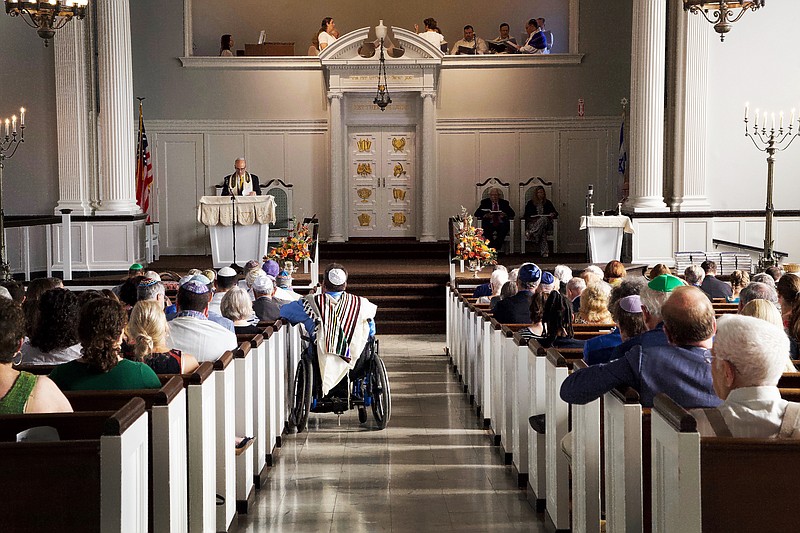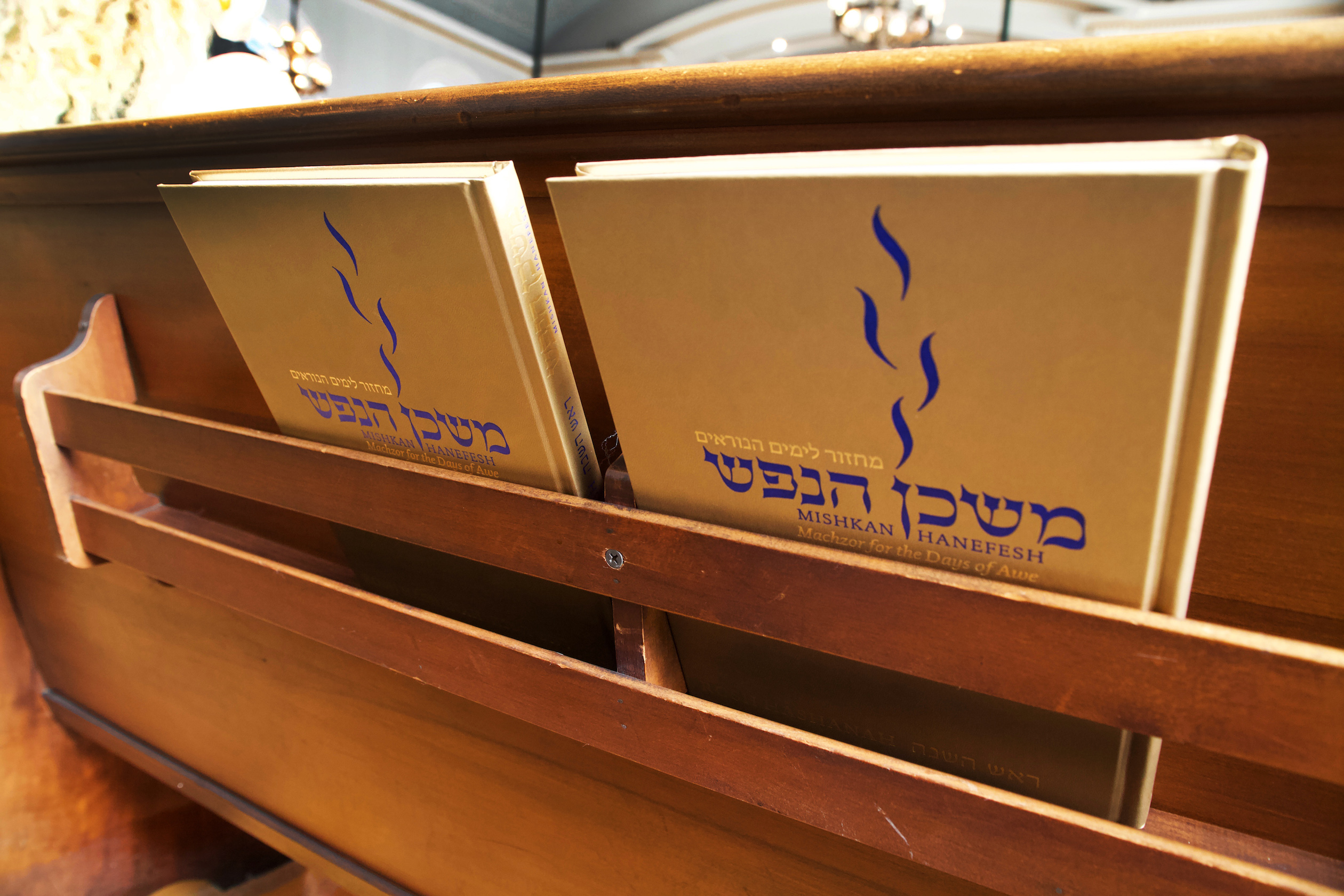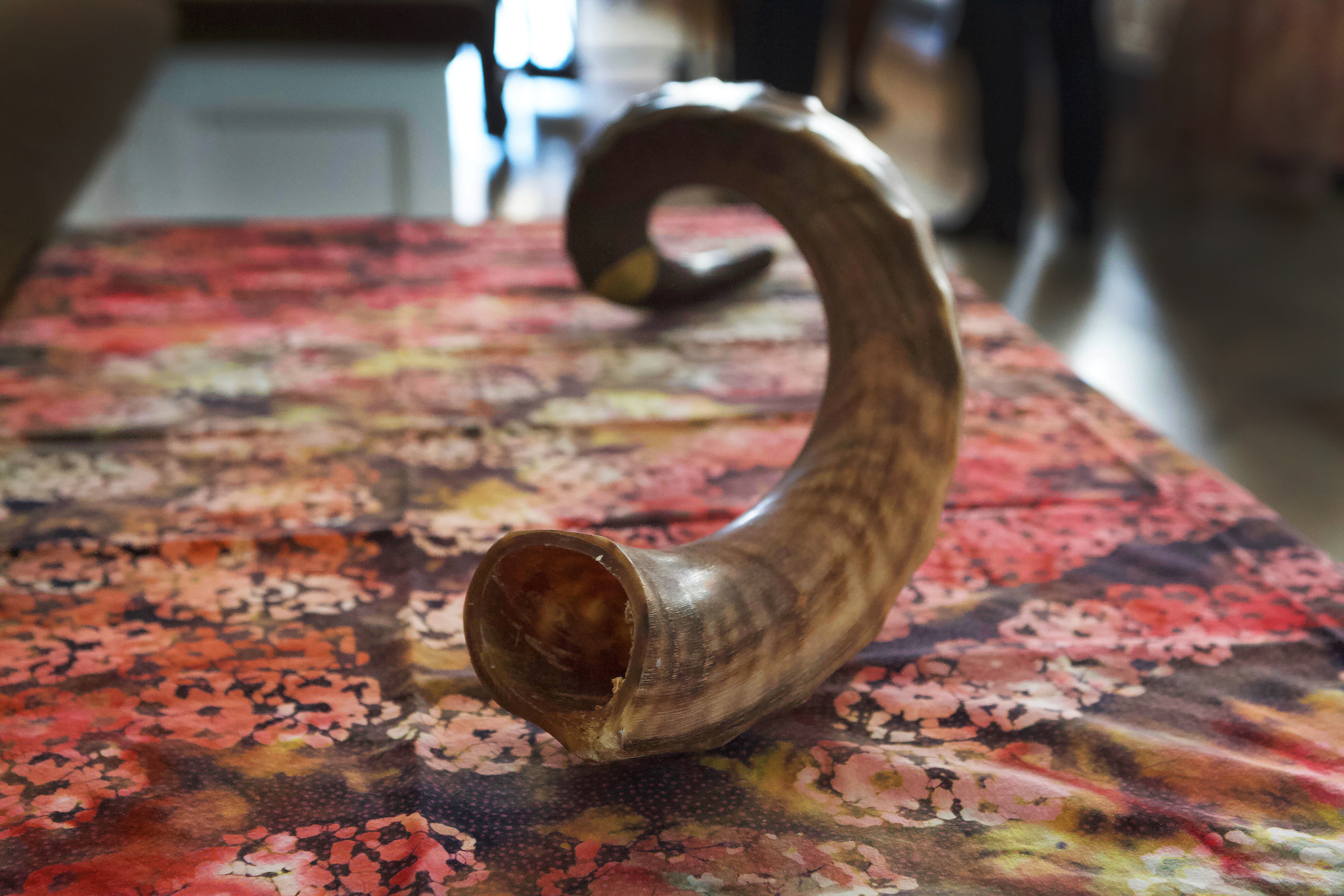In celebration of the new year, around 200 members of the Jewish community gathered at Mizpah Congregation on Monday morning to celebrate Rosh Hashanah, hear the sound of the shofar and begin a period of reflection.
Rabbi Craig Lewis delivered a message of encouragement from the bimah for members of the Reform Jewish tradition. On the new year 5780, he underlined the values of the tradition, including its inclusion of members of the LGBTQ community and its openness to interfaith families.
"Being a reform congregation opens the doors to everyone to be their true selves," Lewis said, before asking those in attendance to reflect on ways they can offer further welcome in the coming year.
Rosh Hashanah marks the start of the Jewish new year. The holiday comes 10 days before Yom Kippur, the day of atonement and the holiest day in the faith.
Amit Matityau, the local shaliach with the Jewish Federation of Greater Chattanooga, led a prayer in his native Hebrew during the service.
Rosh Hashanah is the beginning of a period of spiritual work in the Jewish faith, Lewis said in an interview before the service.
"It's one holiday in a season of holidays that focuses inward on atoning for our sins and atoning to God," he said.
Rachel Salomon was one of four people who played the shofar, a ram's horn, during the service. The opportunity was special because her family was in the congregation on Monday. For more than 20 years, Salomon played the shofar for her children when they lived in a part of rural Virginia without a nearby synagogue.
The blessing of the shofar is not to blow the horn but to hear it, Salomon said, so it is an honor to provide that blessing to others.
"It's a call to action," Salomon said. "It's a time to wake up your inner senses. ... It's a blessing and an honor to stand here as a woman and a Reform Jew."
The blowing of the shofar signals different elevations of prayers depending on the note played, Lewis said. The presence of the horn is special for Rosh Hashanah and its sound offers a kind of "alarm clock for the soul," Lewis said.
Jewish families throughout the world celebrate Rosh Hashanah with meals that include dipping apples or challah into honey, the honey signifying the sweetness of the new year. Pomegranates, a fruit native to the Middle East, are also often eaten during the holiday as a similar symbol of sweetness.
The holiday, which often falls on a weekday, can present problems for members of the faithful who must be excused from school or take a vacation day from work to be able to attend the holiday services.
Rosh Hashanah began the evening of Sept. 29 and runs through Sept. 30 or Oct. 1, depending on the Jewish denomination. Yom Kippur begins the evening of Oct. 8. The days between Rosh Hashanah and Yom Kippur are considered the "days of awe" in the faith, a time for Jews to reflect on the meaning of the holidays.
From the reporter
I became a journalist to help people see people as people. But highlighting the human side of every policy decision, and how it is affecting your community, takes time as well as support from readers. If you believe in telling the stories of people in your community, please subscribe to the Times Free Press today. Contact me at wmassey@timesfreepress.com or 423-757-6249. Find me on Twitter at @News4Mass.


